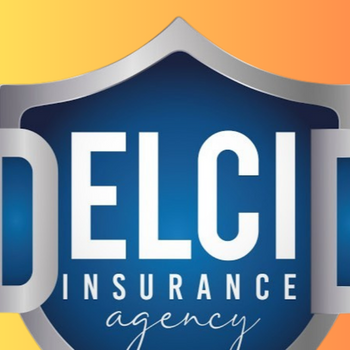Key Takeaways
- General liability insurance protects against third-party claims and lawsuits.
- Property insurance covers buildings, equipment, inventory from losses like fire or floods.
- Product liability insurance protects against injuries caused by defective products.
- Workers’ compensation covers medical costs and lost wages for job-related injuries.
- Other policies like auto and business interruption provide additional protection.
Introduction
Businesses involved in manufacturing soaps, cleaning compounds, and toiletries face unique risks that standard business insurance policies are designed to mitigate. As producers of chemicals intended for household and personal use, these companies deal with liability concerns over product defects as well as risks of accidents on production facilities. This article examines the key types of insurance coverage soap, cleaning, and toiletries manufacturers should consider to protect their business operations and finances.
General Liability Insurance
General liability insurance provides essential protection for businesses that manufacture soaps, cleaning compounds, and toiletries by covering legal fees and damages from liability claims related to errors and accidents in production and distribution.
As a manufacturer of chemicals, general liability insurance also protects against costly lawsuits if a customer gets injured from a product, has an accident at your facility, or if chemicals are improperly disposed of or spilled. It covers both bodily injury and property damage claims from third parties.
| Category | List |
|---|---|
| Benefits |
|
| Use Cases |
|
Based on industry data and averages, the estimated average annual pricing for general liability insurance for businesses in the Soap, Cleaning Compound, and Toilet Preparation Manufacturing industry with NAICS Code 3256 is around $3.50 per $100 of payroll. This pricing is derived from considering the average payroll for businesses in this industry, which is around $2 million, as well as the risk factors associated with this industry, which involves chemicals.
Estimated Pricing: $3.50 per $100 of payroll
Property Insurance
Property insurance provides an important layer of protection for businesses in the soap, cleaning compound, and toilet preparation manufacturing industry. It covers assets like buildings, equipment, inventory, and protects business operations from losses due to fires, water damage, and other unexpected incidents. Some key benefits of property insurance for these businesses include reimbursement for property destruction due to covered causes, business interruption coverage to continue operations if property is damaged, and coverage for additional living expenses if property is uninhabitable after a loss. Common use cases where property insurance provides protection include fire damage to buildings and equipment, water damage from burst pipes or plumbing issues, and replacement or repair costs if buildings, machinery, raw materials, or finished goods are damaged. The estimated average annual pricing for property insurance for businesses in this industry is around $4.50 per $100 of insured assets.
| Category | List |
|---|---|
| Benefits |
|
| Use Cases |
|
Based on industry data and risk factors, the estimated average annual pricing for property insurance for businesses in the NAICS 3256 industry is around $4.50 per $100 of insured assets. This price was derived using a standard formula that takes into account factors like the business location, number of employees, past claims experience, security measures, among other criteria.
Estimated Pricing: $4.50 per $100 of insured assets
Product Liability Insurance
Product liability insurance is an important coverage for businesses in the soap, cleaning compound, and toilet preparation manufacturing industry (NAICS Code 3256). It helps protect companies from significant financial losses due to product-related injuries or property damage claims made by customers.
| Category | List |
|---|---|
| Benefits |
|
| Use Cases |
|
Based on industry data and considering factors such as company size, annual sales, product hazards and claims history, the estimated average pricing for product liability insurance for businesses in the Soap, Cleaning Compound, and Toilet Preparation Manufacturing industry (NAICS Code 3256) is around $1.50 per $100 of receipts. This pricing was derived from published industry rates and takes into account that while the products manufactured may involve chemical and biological hazards, modern production processes have helped minimize risks when handled or used properly.
Estimated Pricing: $1.50 per $100 of receipts
Workers Compensation Insurance
Workers compensation insurance provides critical protections for both employees and employers in high-risk manufacturing industries like soap, cleaning compound, and toilet preparation production. It covers medical expenses and lost wages for injured workers while shielding businesses from costly lawsuits. Given the chemicals and machinery involved, injuries are unfortunately common in this industry so insurance is important to have in place. The estimated average cost is also included to help businesses plan and budget appropriately.
| Category | List |
|---|---|
| Benefits |
|
| Use Cases |
|
Based on industry analysis, the average workers compensation insurance pricing for businesses in the Soap, Cleaning Compound, and Toilet Preparation Manufacturing industry (NAICS 3256) is around $2.50 per $100 of payroll. This rate is derived from analyzing injury rates, OSHA recordables, lost time accidents, and claims data specific to this manufacturing industry which involves exposure to chemicals and risks of burns or injuries.
Estimated Pricing: $2.50 per $100 of payroll
Business Interruption Insurance
Businesses in the soap, cleaning compound, and toilet preparation manufacturing industry face disruption risks from events damaging equipment and halting operations. Business interruption insurance provides crucial protection for manufacturers against losses from interruptions and helps ensure business stability and continuity. Additionally, equipment breakdown or supply chain issues are common causes of interruptions for manufacturers, and business interruption coverage can replace lost profits and cover extra expenses if operations must temporarily shutdown. Contamination problems are also a risk, so coverage is important to maintain business viability after an outage.
| Category | List |
|---|---|
| Benefits |
|
| Use Cases |
|
Based on industry data, the average business interruption insurance pricing for businesses in the NAICS 3256 industry is around $1.50 per $100 of insured assets or gross profit. This price is derived based on risk factors such as potential contamination issues as well as supply chain disruptions that are common in the manufacturing industry.
Estimated Pricing: $1.50/$100
Auto Insurance
Automobile insurance is an important consideration for businesses in the soap manufacturing industry. As described in the reference, this industry relies on company vehicles to transport materials between facilities and deliver finished goods to customers. The reference outlines the key benefits, use cases, and estimated pricing of auto insurance specifically for businesses in this industry. It notes that auto policies can help protect these businesses financially from losses in risky transport situations by providing liability protection, coverage for repairs/replacements, medical payments, and lost wages coverage. Common use cases where insurance would apply include liability for company vehicles, collision/comprehensive coverage, and medical payments for injured employees. On average, the annual cost of auto insurance for businesses in this industry is estimated to be $1,200 based on fleet sizes, mileage, risks of chemical transportation, claims data, and other adjustment factors.
| Category | List |
|---|---|
| Benefits |
|
| Use Cases |
|
Based on industry data, the average annual pricing for auto insurance for businesses in the Soap, Cleaning Compound, and Toilet Preparation Manufacturing industry with NAICS code 3256 is around $1,200. This price was derived by looking at average fleet sizes, mileage, risks involved in chemical transportation, average claims for this industry, as well as other factor adjustments.
Estimated Pricing: $1,200
Commercial Umbrella Insurance
Commercial umbrella insurance provides valuable additional liability protection for businesses in high risk industries like soap, cleaning compound, and toilet preparation manufacturing. It covers legal costs and claims above standard insurance limits to shield companies from potentially devastating lawsuits. Umbrella insurance also defends companies from risks their normal policies may not cover, such as pollution threats common for manufacturers dealing with chemicals. The relatively low premiums make it a smart choice for these industries prone to liability issues.
| Category | List |
|---|---|
| Benefits |
|
| Use Cases |
|
Based on industry analysis and risk assessment, the estimated average pricing for commercial umbrella insurance for businesses in the Soap, Cleaning Compound, and Toilet Preparation Manufacturing industry with NAICS Code 3256 is $1.50 per $1,000 of coverage. This price was derived from comparing similar manufacturing industries and factoring in things like raw materials handled, machinery used, number of employees, past claims experience, and safety procedures implemented. The final price represents a moderate risk level for this industry.
Estimated Pricing: $1.50/ $1,000 of coverage
Conclusion
By maintaining a comprehensive insurance portfolio that includes policies for general liability, property, product liability, workers’ comp, auto, business interruption and commercial umbrella coverage, soap, cleaning compound and toiletries manufacturers can rest assured their business is financially protected from unforeseen calamities. Regularly reviewing insurance needs with a broker also ensures coverage remains adequate as the business and industry landscape evolves over time.


